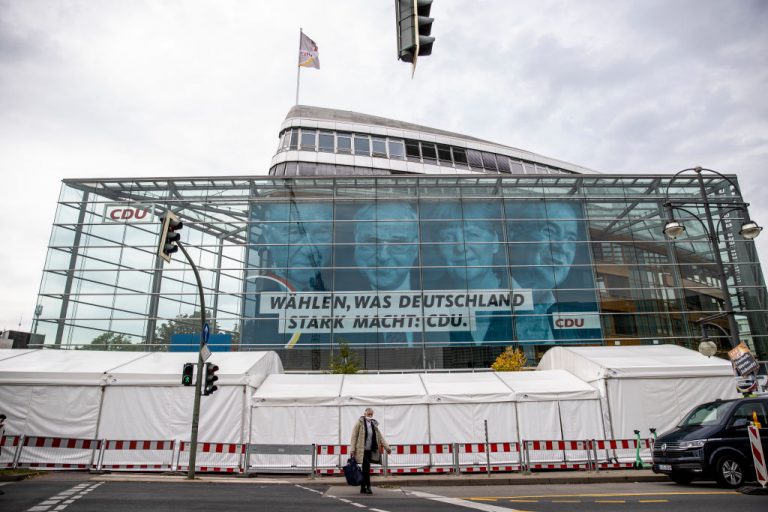On Sept. 26, millions of voters across Germany went to the polls to select the 20th Bundestag, Germany’s Federal Assembly which possesses federal legislative power. Following a tight race, Germany’s centre-left Social Democrats (SPD) were declared the winners.
With his party’s victory, chancellor nominee Olaf Scholz has been awarded the opportunity to form the succeeding government with what he describes as a “clear mandate”.
Electing the Bundestag is determined directly by the German people and the states’ representative, the Bundesrat.
Via a two-vote system, citizens must first vote for their representative before voting for a party, but both votes do not need to be for the same party.
At least 598 members are elected by these two votes – 299 seats are given to directly elected nominees and another 299 for parties that gain more than five percent of the overall vote.
Success
You are now signed up for our newsletter
Success
Check your email to complete sign up
The federal chancellor, the leading figure of the parliament and government, is elected by all the members of the Bundestag, followed by a president who holds a ceremonial position.
The parties of the Bundestag
There were a total of six parties vying for power.
The Christian Democrats (CDU) and its Bavarian counterpart, the Christian Social Union (CSU) fought for lower taxes and budget discipline. The party is known for its conservative-liberal values.
The centre-left SPD, Germany’s oldest party, were initially struggling to make a name for itself, but continued its focus on investment, combating inequality and adopting green policies.
The Greens fought for better social and economic policies and planned on tackling climate change through planned raises on CO2 prices and eliminating combustion engines. They are critical of the communist government of China and opposed the Nord Stream 2 gas pipeline.
The Free Democratic Party (FDP), who has been in a coalition with past governments, campaigned for low tax and deregulation. They wanted to restore the binding debt break, and opposed a eurozone fiscal union.
The Left Party, formed from SPD defectors and “remnants” of communist East Germany, fought for tax increases on the rich and reconsidering Germany’s involvement with the NATO alliance.
The far-right Alternative for Germany (AfD) are anti-immigrant, consisting of deniers of the pandemic and climate change. Through the 2015 migrant crisis, they took advantage of the troubles and emerged to become the official parliamentary opposition.
There was also a Danish minority party, the South Schleswig Voters’ Association (SSW), which campaigned for improved conditions in the South Schleswig region.
2021 elections
According to statistics provided by Al Jazeera, there were about 2.8 million citizens who were voting for the first time, making up 4.6 percent of the overall vote bank. The largest percentage of voters were represented by senior citizens aged 70 and above who represented 21.3% of the vote bank.
After 16 years in power, Chancellor Angela Merkel, leader of the CDU, did not contest for the chancellery; the first time since the country’s reunification at the end of the Cold War.
During the campaign, issues such as climate change and carbon emissions, the fight against COVID-19 and its impact on the economy, social welfare, digital innovation, and support for the European Union (EU) and the North Atlantic Treaty Organization (NATO) were given the utmost attention.
Once the election exit polls were done, the results showed a small but significant lead for the SPD with 25.7% of the nation’s votes, narrowly beating the CDU/CSU alliance and its 24.1 percentage of the vote. According to analysis on the exit polls, the CDU lost about 1.4 million votes to the SPD and more than 80,000 to the Greens.
The party’s candidate Olaf Scholz emerged victoriious to crowds of cheering citizens. Despite being given the nickname “Scholz-o-mat” due to his robotic demeanor, Scholz was able to win the hearts and minds of his supporters with a speech.
“What you see here is a very happy SPD,” Scholz said to his supporters on Monday. “The voters have been very clearly spoken… They strengthened three parties – the Social Democrats, Greens and FDP – and therefore that is the clear mandate the citizens of this country have given – these three should form the next government.”
The formation of a coalition
With the SPD’s victory, Scholz hopes to form a pre-Christmas coalition. Despite challenges from the conservatives, he is bent on cooperating with other parties for the SPD’s goals.
“You should know that Germany always has coalitions, and it was always stable,” said Scholz.
Hoda Abdel-Hamid from Al Jazeera predicts that there will be weeks or months of lengthy negotiations for Scholz’s administration plans.
“It’s still all up in the air,” she said. “Scholz is trying to form what he calls a ‘social-ecological-liberal’ coalition… but its early stages.”
Despite a disappointing loss, the Greens, who leaned towards the SPD, have also achieved sufficient gains in this election, and are still bent on making climate change the “leading issue” for the succeeding administration.

















